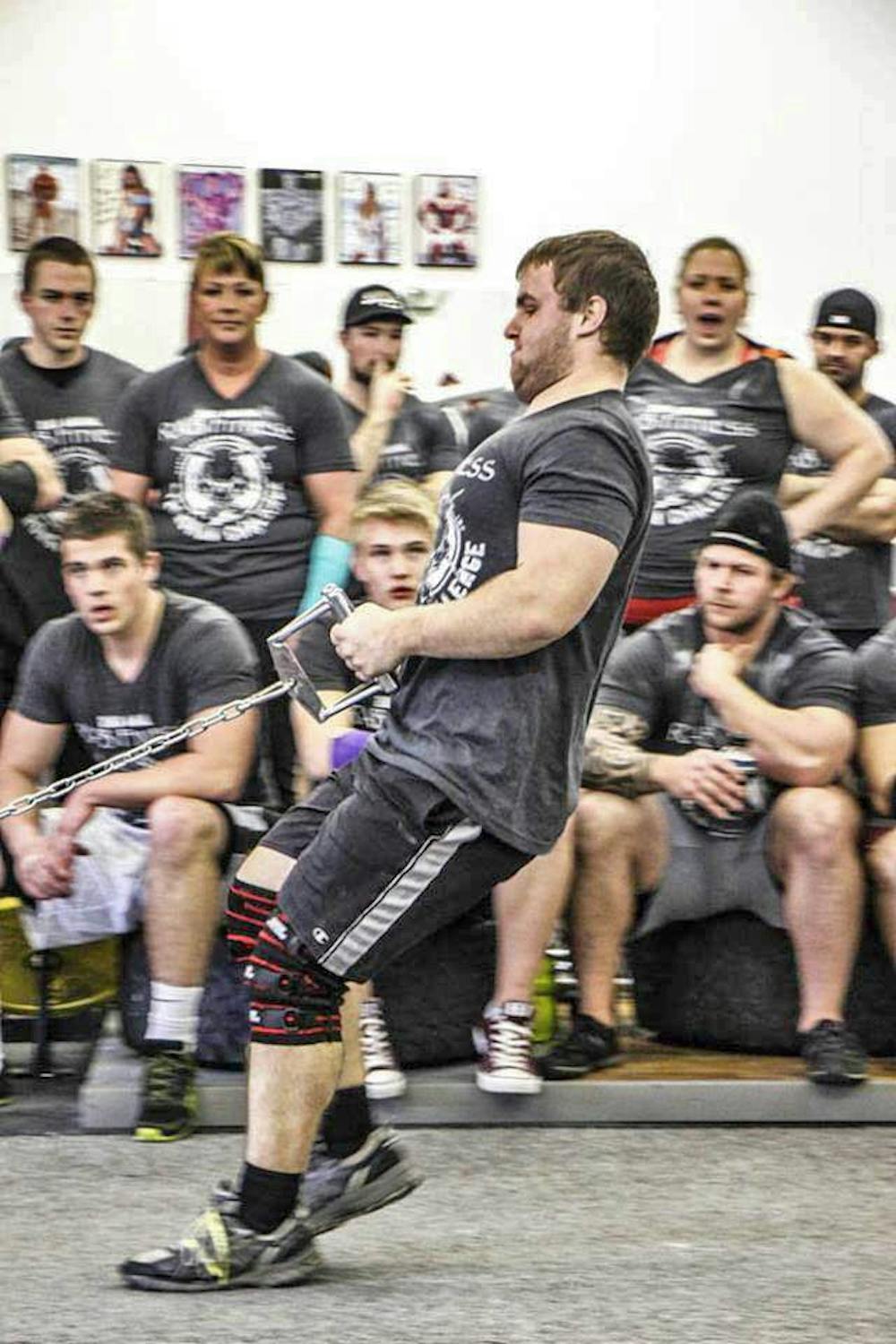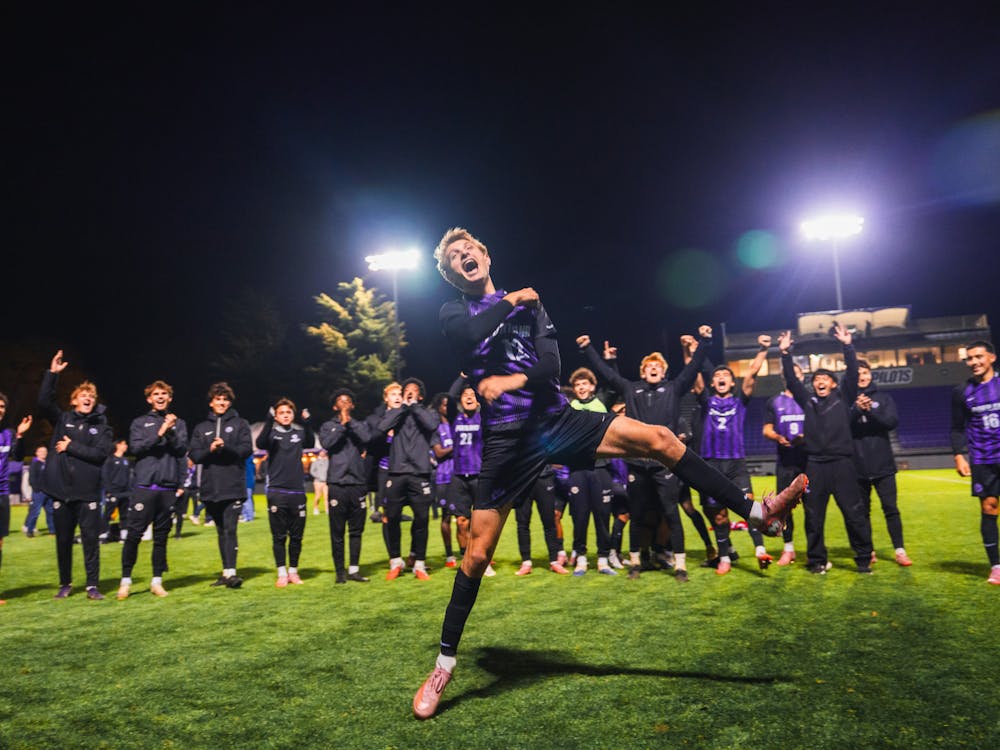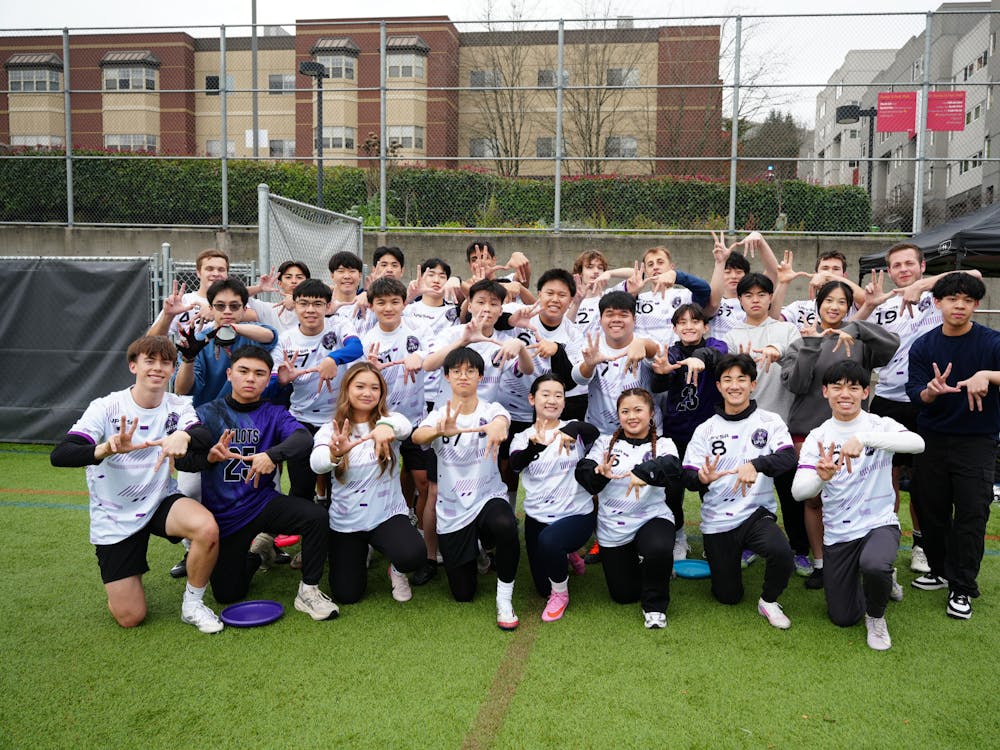By Cassie Sheridan |
So an electrical engineer and a business major walk into a gym and start doing 500-pound deadlifts, then take a break and work on some Excel spreadsheets or some calculus and then do another round, this time maybe 600 pounds. Haven’t heard that joke before? It’s actually a classic afternoon for sophomore business student Arthur Hammer and freshman electrical engineering student Parker Schibel. The pair competes in strongman and powerlifting competitions, their most recent being a strongman competition in Kennewick, Wash.
“Strongman” refers to a person that competes in strength athletics, a competition that involves walking while pulling a car, deadlifting monster truck tires, carrying rocks, etc. The most notorious of these competitions is that of the World’s Strongest Man. “Powerlifting” refers to a strength sport that consists of three attempts at maximal weight on three lifts; squat, bench press, and deadlift. This kind of weightlifting obviously cannot be done at Howard Hall. The two have been driving to an off-campus powerlifting gym for the past year to train.
Hammer and Schibel became passionate about weightlifting through different avenues. Schibel started weight lifting with his dad at a young age to increase performance in sports.
“I started weight lifting when I was about 12 for football,” Schibel said. “I always loved to lift and then when I came to the University of Portland, Arthur introduced me to competitive weightlifting. I come from a powerlifting background and so those competitions are more enticing for me but my first strongman competition was definitely a really fun thing.”
For Hammer, weightlifting at this level began with a desire to get in shape.
“Back in highschool I was just not super fit,” Hammer said. “I decided I really wanted to try out bodybuilding, so I dropped a lot of weight until I realized that strength sports were something I was way more interested in than toning. I wanted to feel strong.”
A typical strongman competition consists of five events that vary from competition to competition. Due to the varied competitions, training for these events has to be dynamic and alters for individual competitors. Schibel and Hammer not only train differently, but they also eat very differently. Hammer, who is larger weight-wise, does heavier work at high volume and eats significantly more food than the average student.
“In a typical training day, I’d probably spend three hours at the gym and eat roughly 8-12 wraps at the Cove,” Hammer said. “I divide my days into certain lifts like overhead, deadlift or squats.”
Schibel, who is considered small for the sport, likes working higher intensities.
“I have more of a back day, leg day or arm day,” Schibel said. “I am more of a power lifter so you work indirectly on your main lift by doing varied type of lifts to work out different muscles. I usually eat only three large meals a day, primarily of protein, because I have a harder time putting on weight.”
The two have found unique ways to merge their majors into their passion for weightlifting, finding a student-athlete balance outside of the traditional one. Hammer, who is an operations and technology management major, spends a great deal of his time on Excel figuring out how to make operations more efficient. He has directly translated these skills into his passion for strongman.
“I think weightlifters get a bad rep for being meatheads, and I’m not saying those people don’t exist but I also don’t think people realize how much programming goes into our training,” Hammer said. “I have logs going back years tracking how much I have lifted at certain points and projecting what I need to be doing daily to reach new weight goals. I have food logs going back four months. It’s pretty funny how much my major has fit perfectly with my lifting career.”
Schibel has balanced the pressure of engineering classes with his weightlifting through reward-based focus.
“I basically wouldn’t let myself go to the gym if I still had homework I needed to do,” Schibel said. “Then some days, I would just bring my homework to the gym with me and work on it in-between reps.”
The two are unsure of where exactly they want their lifting to take them. Hammer, more focused on strongman, realized after an injury that prevented him from even being able to tie his shoes that he needed to take it a lot more seriously.
“I was pretty casual when I first started out,” said Hammer. “Then, I experienced a few herniated disks and it kind of a lit a fire underneath me. When I couldn’t lift or even tie my shoe I realized I couldn’t be so cavalier about it all. I couldn’t take these huge risks with my body if I wasn’t going to treat it right.”
Right now, Hammer just wants to see how far he can take it.
“I won’t be devastated if I’m not you know one of the ‘strongest men in the world’ but I definitely want to see what my body is capable of,” Hammer said. “It’s a unique challenge and something I have grown more and more passionate about.”
Schibel is interested in developing more Olympic-style lifts with his basis in powerlifting and never losing sight of why he started lifting to begin with.
“I do this because I really love being in the gym and I love lifting weights,” said Schibel. “I never want to get to the point where I am so competitive that I don’t look forward to training everyday. If it ever gets to that point, I know I’ll be done. For now, I just want to keep competing and develop my Olympic style lifts, see where that takes me.”








